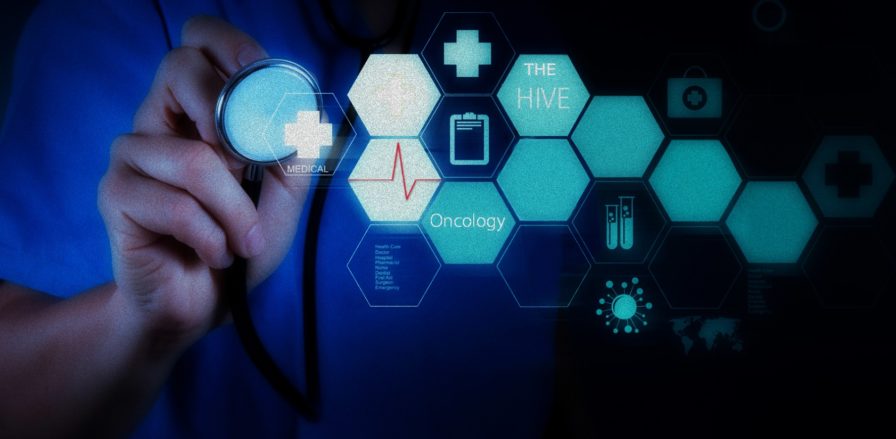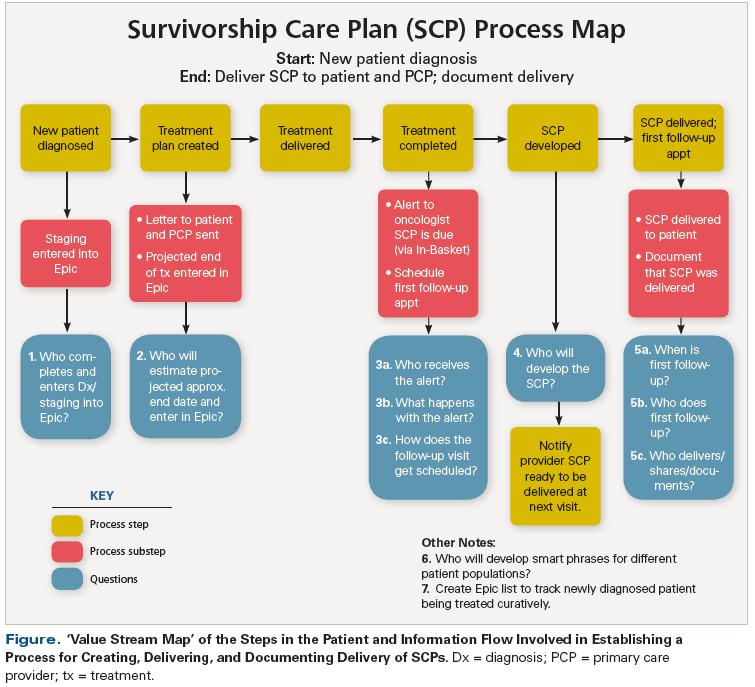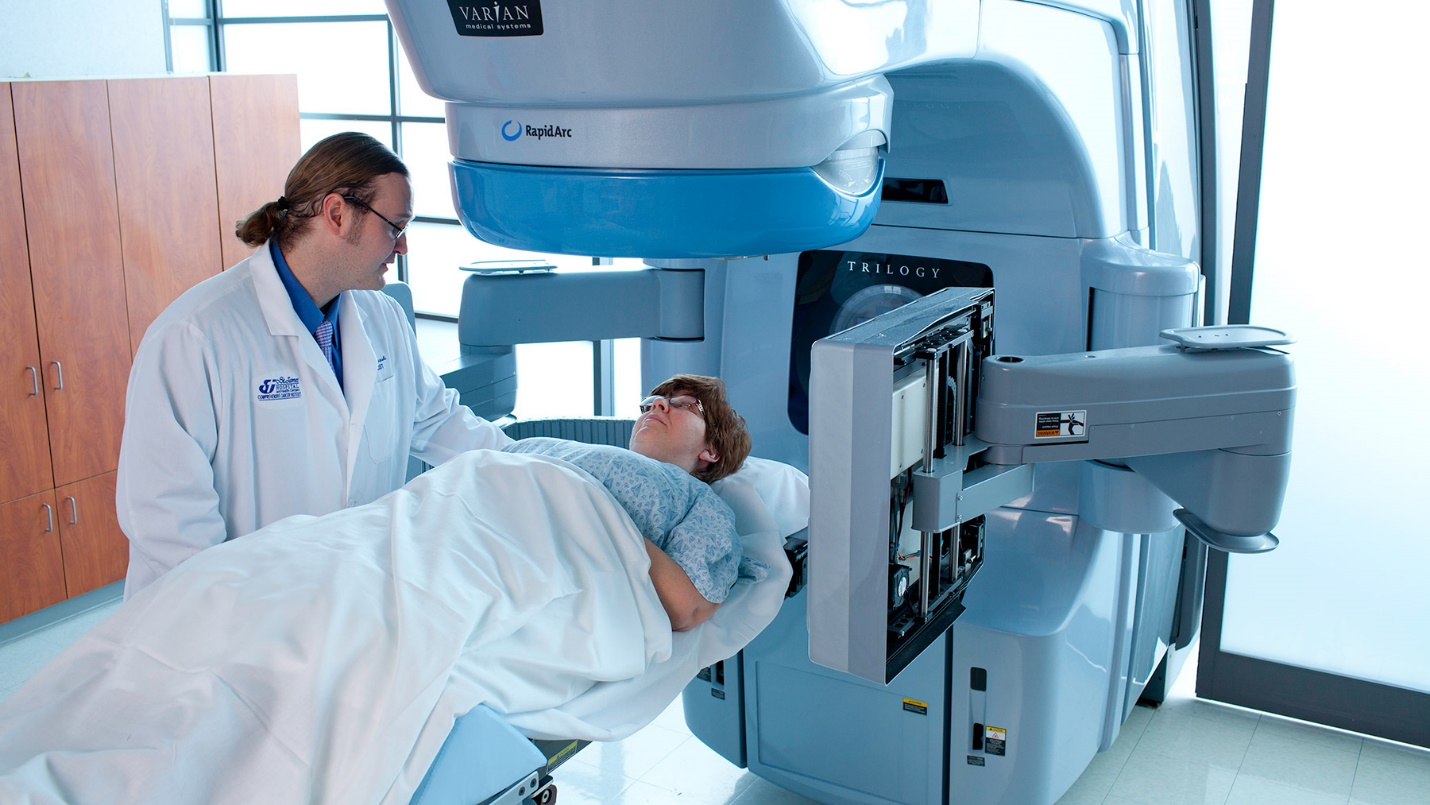Cancer Treatment (Oncology)
-
What is the best cancer treatment?
Some people with cancer will have only one treatment. But most people have a combination of treatments, such as surgery with chemotherapy and/or radiation therapy. You may also have immunotherapy, targeted therapy, or hormone therapy

-
What other treatments are available for cancer?
Types of Cancer Treatment- Surgery. When used to treat cancer, surgery is a procedure in which a surgeon removes cancer from your body.
- Radiation Therapy.
- Chemotherapy.
- Immunotherapy.
- Targeted Therapy.
- Hormone Therapy.
- Stem Cell Transplant.
- Precision Medicine.

-
Is Chemotherapy the best way to treat cancer?
Here's why:- Chemo may be used to shrink a tumor before surgery or radiation therapy. Chemo used in this way is called neoadjuvant therapy.
- It may be used after surgery or radiation therapy to help kill any remaining cancer cells.
- It may be used with other treatments if your cancer comes back.
-
How do oncologists treat cancer?
A medical oncologist treats cancer using chemotherapy or other medications, such as targeted therapy or immunotherapy. A surgical oncologist removes thetumor and nearby tissue during surgery. ... A radiation oncologist treats cancerusing radiation therapy.

-
Can cancer be cured completely?
If the cancer goes away after treatment and there is no longer any sign of it, this is called a complete remission. It is not the same as a cure, because there may still becancer cells in the body that the doctors can't see. It is too early to talk of a cure. A partial remission means that the cancer has shrunk.
-
Can a malignant tumor be cured?
As I said in my comments, there are curable cancers. Curable cancers: non-invasive basal cell carcinoma: Nearly every basal cell cancer can be cured, especially when the cancer is found early and treated. ... Early cervical cancer can be cured by removing or destroying the precancerous or cancerous tissue.
-
How does chemotherapy kill cancer cells?
Chemotherapy kills cells that are in the process of splitting into 2 new cells. ... Because cancer cells divide much more often than most normal cells,chemotherapy is much more likely to kill them. Some drugs kill dividing cells by damaging the part of the cell's control centre that makes it divide.
-
How does radiation kill cancer?
At high doses, radiation therapy kills cancer cells or slows their growth by damaging their DNA. Cancer cells whose DNA is damaged beyond repair stop dividing or die. When the damaged cells die, they are broken down and removed by the body. Radiation therapy does not kill cancer cells right away
-
What are the side effects of cancer treatment?
Side Effects of Cancer Treatment- Anemia
- Anemia
- Bleeding and Bruising (Thrombocytopenia)
- Constipation.
- Delirium.
- Diarrhea
- Edema (Swelling)
- Fatigue.
-
Is radiation better than chemo?
Radiation therapy can take place on its own, but it's frequently combined withchemotherapy as a comprehensive cancer treatment program. Radiation therapy differs from chemotherapy — it is used to treat just the tumor, so it affects only the part of the body that has cancer
-
What doctor treats cancer?
Surgical oncologist. This is a surgeon who has special training in treating cancer. Your surgical oncologist may be called in to diagnose cancer with a biopsy. Surgical oncologists also treat cancer by removing tumors or other cancerous tissue
-
Do oncologists do surgery?
Types of Oncologists. ... A medical oncologist treats cancer using chemotherapy or other medications, such as targeted therapy or immunotherapy. A surgical oncologist removes the tumor and nearby tissue during surgery. He or she also performs certain types of biopsies to help diagnose cancer.
CONCLUSIONS
Based on its findings with regard to the significant impact of psychosocial problems on health and health care, the existence of effective psychosocial services to address these problems, and the development and testing of strategies for delivering these services effectively, the committee concludes that:
Attending to psychosocial needs should be an integral part of quality cancer care. All components of the health care system that are involved in cancer care should explicitly incorporate attention to psychosocial needs into their policies, practices, and standards addressing clinical health care. These policies, practices, and standards should be aimed at ensuring the provision of psychosocial health services to all patients who need them.
The committee defines psychosocial health services as follows:
Psychosocial health services are psychological and social services and interventions that enable patients, their families, and health care providers to optimize biomedical health care and to manage the psychological/behavioral and social aspects of illness and its consequences so as to promote better health.
